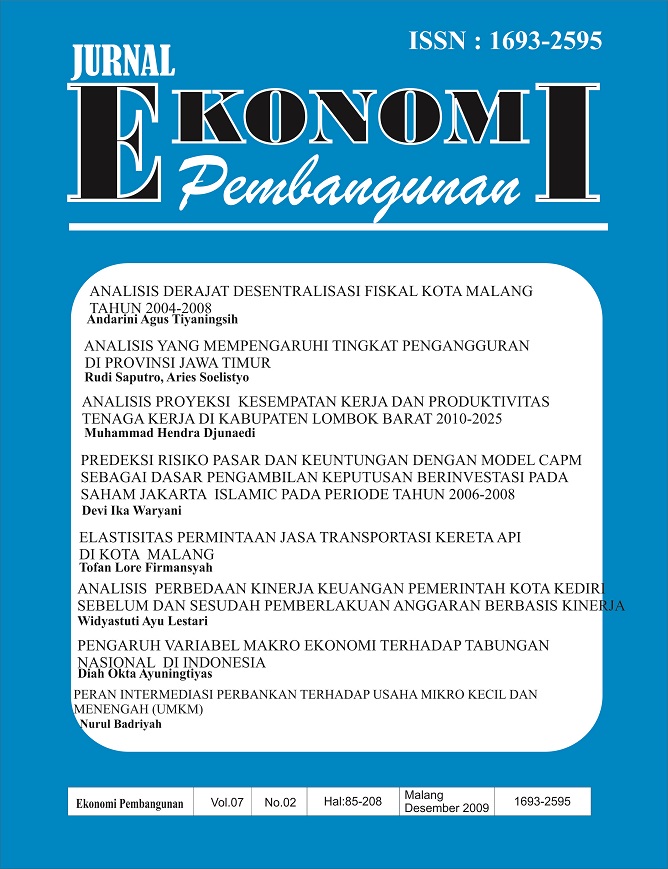ELASTISITAS PERMINTAAN JASA TRANSPORTASI KERETA API DI KOTA MALANG
DOI:
https://doi.org/10.22219/jep.v7i2.3593Keywords:
elasticity, transportation, and trainAbstract
Method which is used in this research technique analyse elasticity, technique analyse this represent technique with aim to to know how big mount elasticity request of train transportation service in Malang City. From result of examination obtained conclusion of cause the happening of Perfect Elasticity at Economic Class, because of low price storey of society tend to to chosen cheap price as according to its production level. So that in middle economic level downwards more opting society of Economic class train than Business class train and also Executive. Executive class pertained elastic in of perfection because of how price will buy. Because of the class have different level. In this class met many middle-weight consumer to to the. While Business class train is including level . Ing strata third class at Business class train reside in between Economic class and Executive class. So that at this class of diffraction enjoyedDownloads
Download data is not yet available.
Downloads
Published
2009-12-01
Issue
Section
Journal
License
Authors who publish with Jurnal Ekonomi Pembangunan (JEP) agree to the following terms:
- For all articles published in Jurnal Ekonomi Pembangunan (JEP), copyright is retained by the authors. Authors permit the publisher to announce the work with conditions. When the manuscript is accepted for publication, the authors agree to the publishing right's automatic transfer to the publisher.
- Authors retain copyright and grant the journal right of first publication with the work simultaneously licensed under a Creative Commons Attribution-NonCommercial-ShareAlike 4.0 International License that allows others to share the work with an acknowledgment of the work's authorship and initial publication in this journal.
- Authors can enter into separate, additional contractual arrangements for the non-exclusive distribution of the journal's published version of the work (e.g., post it to an institutional repository or publish it in a book), with an acknowledgment of its initial publication in this journal.
- Authors are permitted and encouraged to post their work online (e.g., in institutional repositories or on their website) before and during the submission process, as it can lead to productive exchanges and earlier and greater citation of published work (See The Effect of Open Access).

This work is licensed under a Creative Commons Attribution-NonCommercial-ShareAlike 4.0 International License.






















